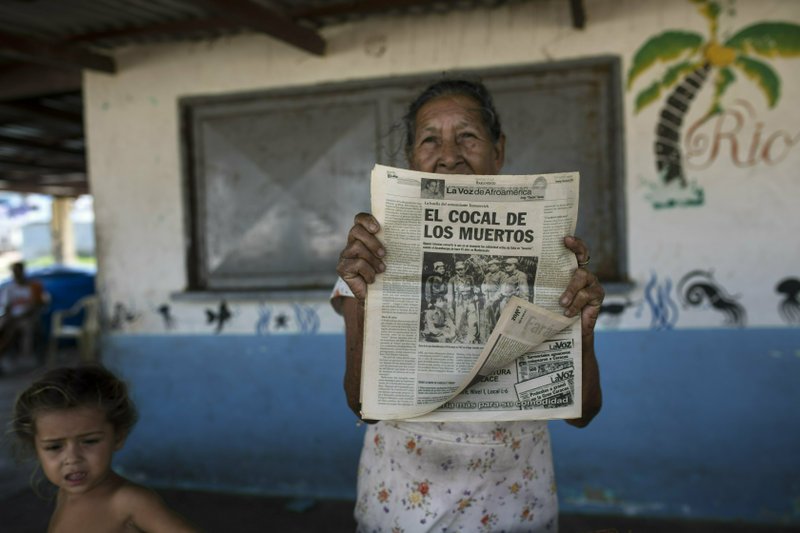MACHURUCUTO, Venezuela – For all the heated talk coming from Washington about President Nicolás Maduro being a Cuban puppet, there was a time when Cuban troops really did try to take control of Venezuela — or at least a remote coconut-strewn tropical beach.
Fifty-two years ago this month an expeditionary force of 12 guerrillas departed from the communist-run island and days later landed in this sleepy fishing village with the goal of spreading Fidel Castro’s revolution to South America.
The incursion — condemned at the time as a Cuban “invasion” — was a resounding failure. Of the four Cuban guerrillas transporting the mission, one drowned when their inflatable raft overturned while the others were captured by a military patrol tipped off about the landing by a CIA mole. Within a year, the insurgency, which included eight Venezuelans who evaded capture, was wiped out.
Fast-forward a half century and Venezuela’s socialist government would welcome what past governments condemned as “invaders” with a red carpet — a fact not lost on the U.S., which has accused Cuba of being Maduro’s main prop in power as the economy around him falls apart.
“No one has done more to support the corrupt Maduro regime than Cuba,” Vice President Mike Pence said in a policy speech this month. “The people of Venezuela are essentially Cuba’s hostage.”
But the reality of Cuban influence in Venezuela is more nuanced.
The extraordinarily tight alliance between the two countries was forged when Castro counseled Hugo Chávez following a failed 2002 coup. Venezuela has since sent an estimated $30 billion worth of oil to Cuba in exchange for Havana dispatching tens of thousands of medical workers and other government employees, including intelligence and military advisers, according to defectors.
While nobody doubts the strong ideological alliance, U.S. estimates of as many as 25,000 Cuban troops on the ground have been denied by Cuba and seem wildly exaggerated even to some in the U.S. intelligence community.
“There are no troops,” Carlos Fernández de Cossío, Cuba’s director general of U.S. affairs, said in a recent interview in Washington. “Cuba does not participate in military operations nor in security operations in Venezuela.”
What’s not in doubt is Cuba’s strategic interest in Venezuela — something that traces its roots to the Machurucuto (pronounced matjurKUto) incident.
A straggling visitor to the depressed town of 500 would never know from the boarded-up beach kiosks and decaying fishing boats that it was briefly a flashpoint in the Cold War fight against communism.
It was chosen as a beachhead because of its proximity to a jungled mountain range stretching toward Caracas that was a major center of guerrilla activity.
Ana Morffe, one of the few elderly residents who remember the incident, said she didn’t even know what a guerrilla was at the time. But unbeknownst to her, one of the young fighters sneaked through an open window of her house while she was out washing clothes at the river and cooked himself a meal.
“I didn’t see him, but he surely saw me,” said the 75-year-old.
Héctor Pérez Marcano, one of the surviving members of the expedition, said Castro’s support stemmed from an overriding interest in Venezuela’s oil.
A little more than two weeks after Castro rode into Havana triumphantly in 1959, he flew to Caracas, where massive crowds lined highways to get a glimpse of the bearded revolutionary whose defeat of the U.S.-backed dictator Fulgencio Batista would inspire a new generation of Latin American leftists.
A few years later, Marcano and a few dozen Venezuelans traveled to Cuba for military training. He said the idea of deploying by sea came directly from Castro at a meeting on the top floor of the Habana Libre hotel during the first Tricontinental Conference of revolutionaries from Africa, Asia and Latin America.
Almost 18 months later, Castro was present when the rebels shipped out from Santiago de Cuba at 6 a.m., handing each member of the expedition a Rolex watch — the ultimate all-terrain aid for any revolutionary worth his salt, he told them. A year earlier, another landing squad with 15 Cuban guerrillas, including a highly-decorated war hero who would go on to command Castro’s troops in Ethiopia and Angola, landed covertly in western Falcon state.
“Back then (for Fidel) Venezuela was the crown jewel of Latin America,” said Marcano.
The impact of the clandestine intervention was immediately felt: an emergency meeting of regional diplomats was convened in Washington and Venezuela broke off diplomatic relations with Havana. It would take seven years for them to be restored.
Marcano, an opponent of Maduro, said Venezuela’s petro-diplomacy over the past decade has been at the service of Cuba’s interests.
“What Fidel was unable to accomplish in the 1960s through armed conflict he was able to do now using Chavez and Venezuela as a tool for hemispheric domination,” said Marcano.
William Izarra was a recent graduate of Venezuela’s air force academy when he was sent to Machurucuto and asked to interrogate one of the Cuban subversives, Antonio Briones, in a field tent set up on the beach.
Trained under the influence of U.S. national security doctrine to despise communists, he was instead amazed by the firmness of Briones’ revolutionary ideals, which contrasted with his soft green eyes and serene demeanor.
“I thought a communist was someone with horns and a tail,” said Izarra, who is now a member of Venezuela’s ruling socialist party and teaches course on Marxism. “But it turned out the devil was actually an angel.”
When he showed up the next day, Briones was lying dead on the beach, his face ripped off. How he was killed remains a mystery.
But Izarra credits the brief encounter with the Cuban rebel for a political epiphany. Over the ensuing two decades, he’d work clandestinely to spread leftist ideology inside the barracks, eventually joining forces with coup-plotters led by then-Lieutenant Chávez.
He disputes Marcano’s view that Cuba is pulling Maduro’s strings, and worries that as Venezuela’s political crisis attracts more international attention the U.S. is magnifying the role played by Cuba in something akin to the Cold War hysteria.
“There’s a real push to return to anti-communist ideology in which Cuba is identified as the source of all evil,” he said.
In Machurucuto, opinions about the Cubans vary. A plaque dedicated by Izarra and other government supporters in 2006 has since been stolen. Chavez, despite an almost encyclopedic knowledge and passion for history, never visited the town as president, reflecting some of the nationalist sensibilities that compete for support of socialism inside the ruling party.
Cuba’s government has been far more generous. There’s a town in western Cuba named for Briones, as well as a military medal emblazoned with his image.
Meanwhile, for many town residents, their only contact with the one-time aggressors is at a hospital in a nearby city where Cuban doctors treat them for free — albeit with alarmingly scant medical supplies.
Morffe, despite surviving on a pension that’s barely enough to afford a kilo of meat, still supports Maduro, blaming instead the people he’s surrounded himself with for the country’s sorry state. She said Venezuelans need to learn from Cuba, which suffered severely following the collapse of the Soviet Union and the end of generous subsidies, as it struggles to confront its own hardships.
“They talk to you, they’re our friends,” said Morffe of the Cuban doctors. “The little we have is because of them.”





What about US designs on Venezuela–using its imperialist Monroe Doctrine?
Interesting story. Understanding history is the key to understanding the politics of today.